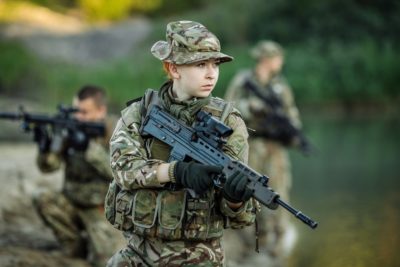Recently… on ‘moral injury’ and armed forces suicides in the US and UK
ForcesWatch comment
2012 was the the first year ‘in at least a generation’ in which a greater number of currently-serving US Army soldiers killed themselves (177) than were killed in active duty (176). The Guardian’s analysis shows that this is partly because US deaths in military action went down during 2012 but also partly because the suicide rate has risen.
If suicides in the other services (Navy 60, Marines 48, Air Force 59) are added, the totals become 349 and 295 respectively.
Army vice chief of staff General Lloyd J. Austin III said in August 2012 that, “Suicide is the toughest enemy I have faced in my 37 years in the Army”.
Yet the number of US military veterans who killed themselves 2012 is 6,500 – ‘roughly equivalent to one every 80 minutes’. The reasons are complex with multiple deployments becoming evident as a factor. The Guardian quotes that, “William Nash, a retired Navy psychiatrist…. and colleagues in military psychiatry have developed the concept of ‘moral injury’ to help understand the current wave of self-harm. He defines that as ‘damage to your deeply held beliefs about right and wrong. It might be caused by something that you do or fail to do, or by something that is done to you – but either way it breaks that sense of moral certainty.’
“Contrary to widely held assumptions, it is not the fear and the terror that service members endure in the battlefield that inflicts most psychological damage, Nash has concluded, but feelings of shame and guilt related to the moral injuries they suffer. Top of the list of such injuries, by a long shot, is when one of their own people is killed.”
The Telegraph states that 50 members of the UK armed forces who served in Iraq and/or Afghanistan committed suicide between 2001 and 2011. Eight of these killed themselves on tour: six in Iraq, and two in Afghanistan. Another UK military suicide since then was that of Captain James Townley; the verdicts on a further eleven possible suicides were still pending as of December 2012. The Mental Health Foundation ‘said young veterans were twice as likely to take their own life as their peers’, although the Ministry of Defence ‘said no link had been found between operations and suicide in the UK Armed Forces.’
Figures from Defence Analytical Services and Advice indicate that roughly 131 suicides and open verdict deaths have occurred among UK Armed Forces regulars as a whole since 2004.
A direct comparison between UK and US is difficult as there are far fewer serving members of the UK forces as well as other differentiating factors. However, in 2002 it was reported that the South Atlantic Medal Association estimated that more Falklands veterans had committed suicide since the conflict than had been killed during it (264 suicides and 255 deaths in military action). Suicides were still occuring 20 years later.
A member of the organisation Combat Stress said in a recent interview that mental health problems are common in the UK Armed Forces, but that the average time between returning from tour and seeking help from them is three years.
This suggests that, although there is now greater recognition of PTSD and other issues that veterans face, the tragic effect of ‘moral injury’ on those who take an active part in conflict is likely to be felt for many years.
See more: risks, suicide
Like what you read?
> Sign up for our newsletter or blog notifications
> Support our work – from just £2 a month










